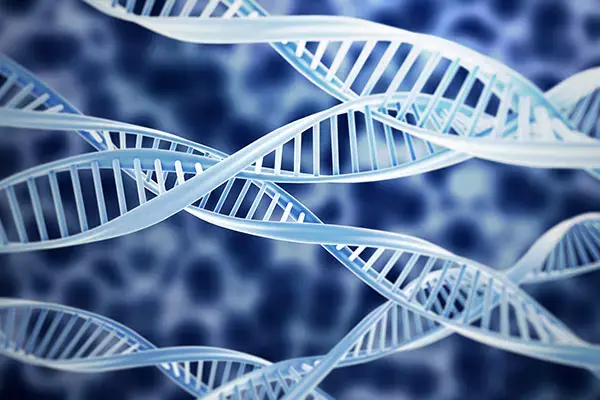- Home
- Medical news & Guidelines
- Anesthesiology
- Cardiology and CTVS
- Critical Care
- Dentistry
- Dermatology
- Diabetes and Endocrinology
- ENT
- Gastroenterology
- Medicine
- Nephrology
- Neurology
- Obstretics-Gynaecology
- Oncology
- Ophthalmology
- Orthopaedics
- Pediatrics-Neonatology
- Psychiatry
- Pulmonology
- Radiology
- Surgery
- Urology
- Laboratory Medicine
- Diet
- Nursing
- Paramedical
- Physiotherapy
- Health news
- Fact Check
- Bone Health Fact Check
- Brain Health Fact Check
- Cancer Related Fact Check
- Child Care Fact Check
- Dental and oral health fact check
- Diabetes and metabolic health fact check
- Diet and Nutrition Fact Check
- Eye and ENT Care Fact Check
- Fitness fact check
- Gut health fact check
- Heart health fact check
- Kidney health fact check
- Medical education fact check
- Men's health fact check
- Respiratory fact check
- Skin and hair care fact check
- Vaccine and Immunization fact check
- Women's health fact check
- AYUSH
- State News
- Andaman and Nicobar Islands
- Andhra Pradesh
- Arunachal Pradesh
- Assam
- Bihar
- Chandigarh
- Chattisgarh
- Dadra and Nagar Haveli
- Daman and Diu
- Delhi
- Goa
- Gujarat
- Haryana
- Himachal Pradesh
- Jammu & Kashmir
- Jharkhand
- Karnataka
- Kerala
- Ladakh
- Lakshadweep
- Madhya Pradesh
- Maharashtra
- Manipur
- Meghalaya
- Mizoram
- Nagaland
- Odisha
- Puducherry
- Punjab
- Rajasthan
- Sikkim
- Tamil Nadu
- Telangana
- Tripura
- Uttar Pradesh
- Uttrakhand
- West Bengal
- Medical Education
- Industry
Genetic predisposition to diabetes decreases risk of thoracic aortic aneurysm

Genetic predisposition to T2D decreases the risk of thoracic aortic aneurysm suggests a new study published in the Diabetology & Metabolic Syndrome.
Observational studies have reported an inverse association of type 2 diabetes (T2D) with thoracic aortic aneurysm (TAA). However, the causality of the association has not been established yet. The present study aims to clarify the causal relationship between T2D and TAA via a Mendelian randomization (MR) approach.
Causality of associations were assessed using a two-sample MR framework. Genome-wide association study (GWAS) summary statistics were obtained for T2D, glycated hemoglobin (HbA1c), fasting glucose (FG) and fasting insulin (FI) as exposures, and TAA, ascending aortic diameter (AAoD) and descending aortic diameter (DAoD) as outcomes. Four different methods (inverse variance weighted [IVW], weight median, MR-Egger and MR-PRESSO) were used to calculate causal estimates. Heterogeneity and horizontal pleiotropy were assessed using Cochran Q test and MR-Egger regression intercept, respectively.
Results
Genetically predicted T2D was inversely associated with the risk of TAA (OR: 0.931, 95% CI 0.870 to 0.997, p = 0.040, IVW method) and AAoD (Beta: -0.065, 95%CI −0.099 to − 0.031, p = 1.7e−04, IVW method), but not with DAoD (p > 0.05). Genetically predicted FG level was inversely associated with AAoD (Beta: −0.273, 95% CI −0.396 to –0.150, p = 1.41e−05, IVW method) and DAoD (Beta: −0.166, 95% CI −0.281 to −0.051, p = 0.005, IVW method), but not with TAA (p > 0.05). The effect of genetically predicted HbA1c and FI on TAA, AAoD and DAoD did not reach statistical significance (p > 0.05).
Genetic predisposition to T2D decreases the risk of TAA. Genetically predicted T2D is inversely associated with AAoD, but not with DAoD. Genetically predicted FG level was inversely associated with AAoD and DAoD.
Reference:
Zhang, Y., Li, Y., Dai, X. et al. Type 2 diabetes has a protective causal association with thoracic aortic aneurysm: a Mendelian randomization study. Diabetol Metab Syndr 15, 120 (2023). https://doi.org/10.1186/s13098-023-01101-1
Keywords:
Diabetology & Metabolic Syndrome, Zhang, Y., Li, Y., Dai, X, Type 2, diabetes, protective causal, association, thoracic, aortic aneurysm, Mendelian randomization study, Glycated hemoglobin, Fasting glucose, Fasting insulin, Thoracic aortic aneurysm, Aortic diameter, Mendelian randomization
Dr. Shravani Dali has completed her BDS from Pravara institute of medical sciences, loni. Following which she extensively worked in the healthcare sector for 2+ years. She has been actively involved in writing blogs in field of health and wellness. Currently she is pursuing her Masters of public health-health administration from Tata institute of social sciences. She can be contacted at editorial@medicaldialogues.in.
Dr Kamal Kant Kohli-MBBS, DTCD- a chest specialist with more than 30 years of practice and a flair for writing clinical articles, Dr Kamal Kant Kohli joined Medical Dialogues as a Chief Editor of Medical News. Besides writing articles, as an editor, he proofreads and verifies all the medical content published on Medical Dialogues including those coming from journals, studies,medical conferences,guidelines etc. Email: drkohli@medicaldialogues.in. Contact no. 011-43720751


